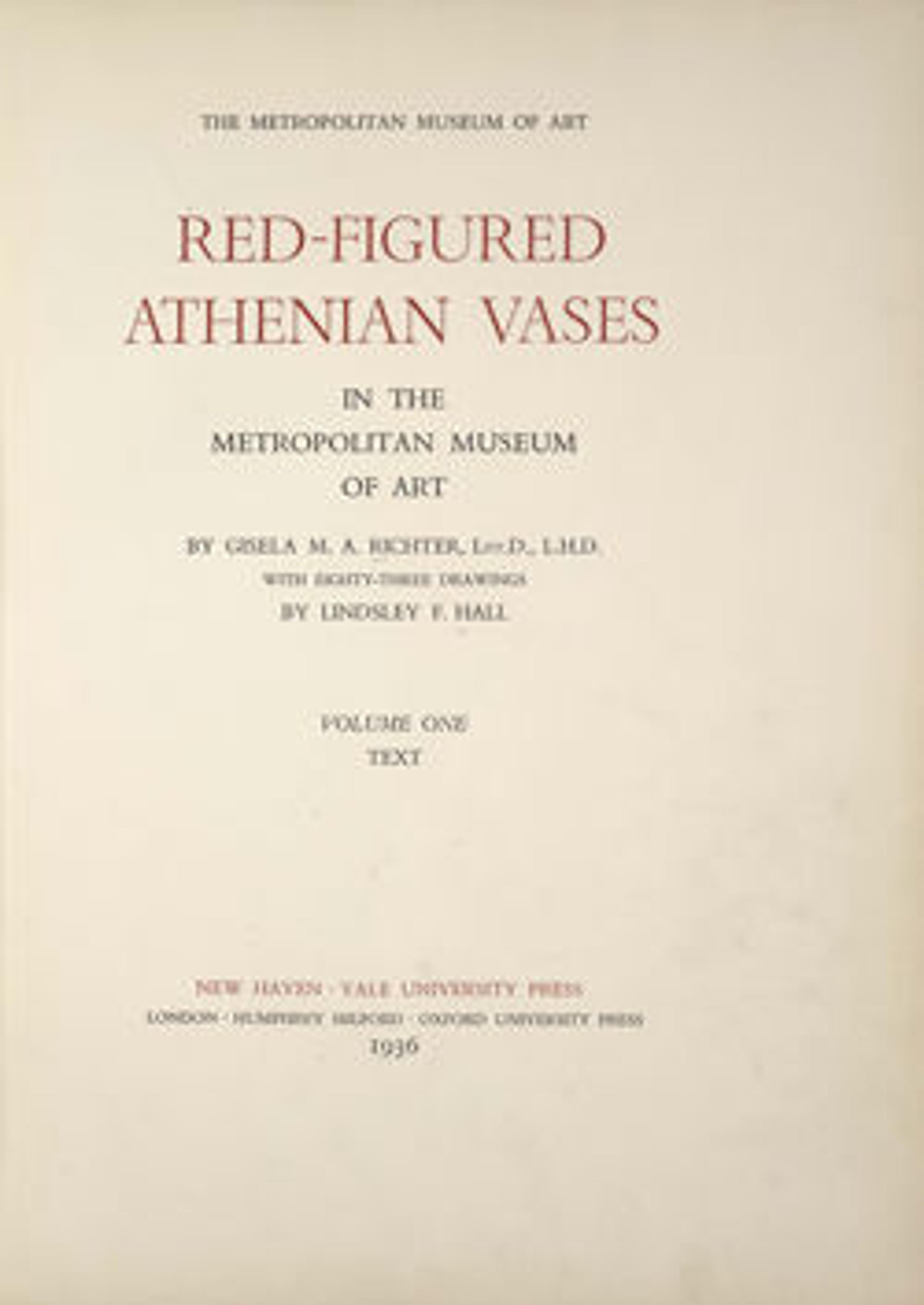Terracotta pelike (wine jar)
Obverse, Herakles in the garden of the Hesperides with Okeanos, the personification of the ocean, and two Hesperids. Three names are inscribed: Herakles, Okeanos, Pasithea
Reverse, two youths and a boy
One of the labors of the hero Herakles was to go to the island of the Hesperides beyond the ocean that circled the world and to bring back golden apples guarded by a serpent and a group of immortal women known as Hesperids. A number of vases of the fifth century B.C. show Herakles relaxing with the beautiful Hesperids, who have quieted the serpent and picked the apples for him. Here the seated Hesperid raises her veil in a gesture associated with brides.
Reverse, two youths and a boy
One of the labors of the hero Herakles was to go to the island of the Hesperides beyond the ocean that circled the world and to bring back golden apples guarded by a serpent and a group of immortal women known as Hesperids. A number of vases of the fifth century B.C. show Herakles relaxing with the beautiful Hesperids, who have quieted the serpent and picked the apples for him. Here the seated Hesperid raises her veil in a gesture associated with brides.
Artwork Details
- Title: Terracotta pelike (wine jar)
- Artist: Attributed to the Pasithea Painter
- Period: Late Classical
- Date: ca. 400–375 BCE
- Culture: Greek, Attic
- Medium: Terracotta; red-figure
- Dimensions: H.: 9 3/4 x 8 1/4 in. (24.8 x 21 cm)
- Classification: Vases
- Credit Line: Rogers Fund, 1908
- Object Number: 08.258.20
- Curatorial Department: Greek and Roman Art
More Artwork
Research Resources
The Met provides unparalleled resources for research and welcomes an international community of students and scholars. The Met's Open Access API is where creators and researchers can connect to the The Met collection. Open Access data and public domain images are available for unrestricted commercial and noncommercial use without permission or fee.
To request images under copyright and other restrictions, please use this Image Request form.
Feedback
We continue to research and examine historical and cultural context for objects in The Met collection. If you have comments or questions about this object record, please contact us using the form below. The Museum looks forward to receiving your comments.
